Products
RIP Artist Pippa Garner
Her Wikipedia page.




Posted By: Paul - Sun Jan 12, 2025 -
Comments (3)
Category: Art, Humor, Parody, Products
Child Shredded Meat
Chinese Innovation and Branding Leaps (2022):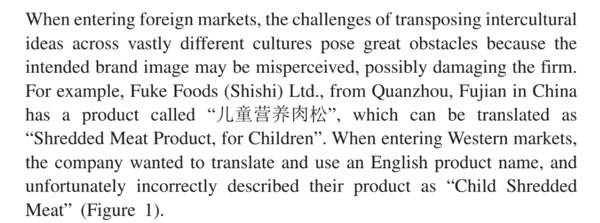

Posted By: Alex - Mon Oct 23, 2023 -
Comments (8)
Category: Food, Odd Names, Products, Children
SHT and SCAT
In his 1983 book Big Business Blunders: Mistakes in Multinational Marketing, David Ricks tells the following story:I've been able to find ads for SHT, such as the one below, but none exactly like the one that Ricks describes. Which doesn't mean the ad doesn't exist. Just that it isn't in any journals archived online.
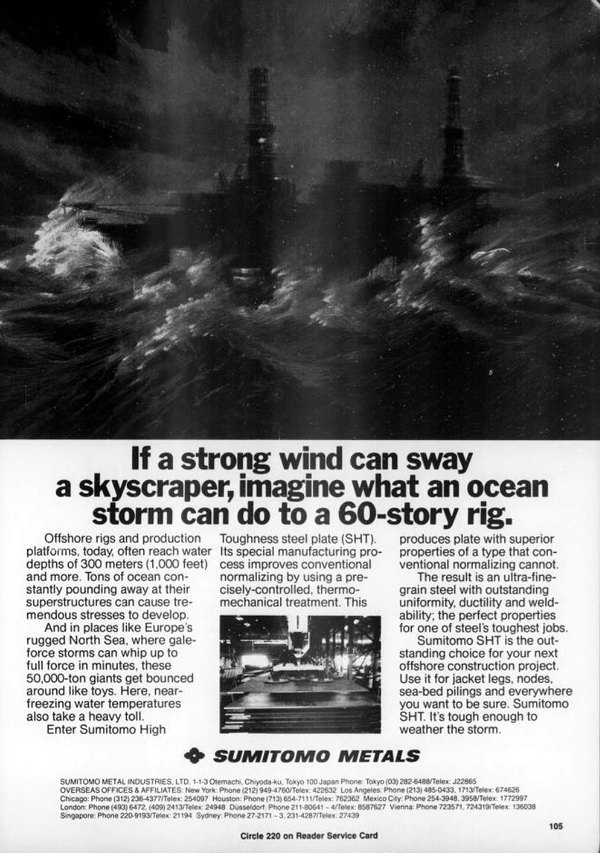
However, among the ads for SHT that I was able to find, I found one that actually improves (and possibly complicates) Ricks's story. Because it turns out that Sumitomo had another product, Sumitomo Calcium Treatment, that it abbreviated as SCAT.
Once I could accept as an honest mistake, but coming up with scatalogical abbreviations twice seems intentional. I'm guessing either someone at Sumitomo thought it was funny, or someone at the Japanese agency was having a joke at their expense.
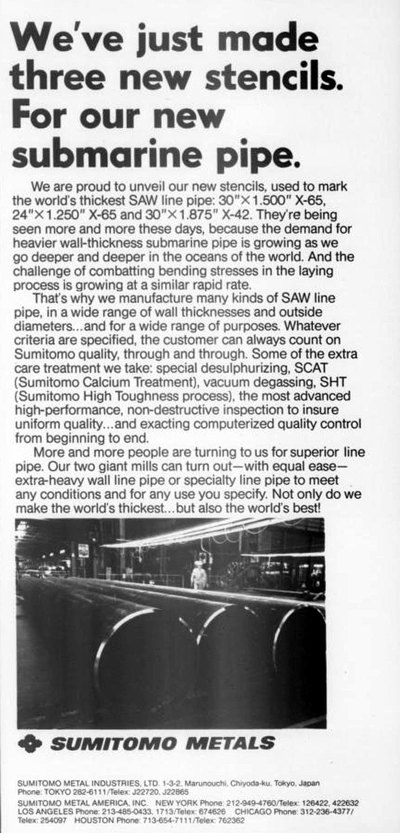
Posted By: Alex - Sun Nov 27, 2022 -
Comments (1)
Category: Business, Products, Odd Names, Excrement, 1980s
Harley-Davidson Perfume
Classic business failure: "Hot Road," an eau de toilette released by Harley-Davidson in the mid-1990s and quietly discontinued a year or two later. It wasn't exactly an "on brand" product.More info: Milwaukee Magazine
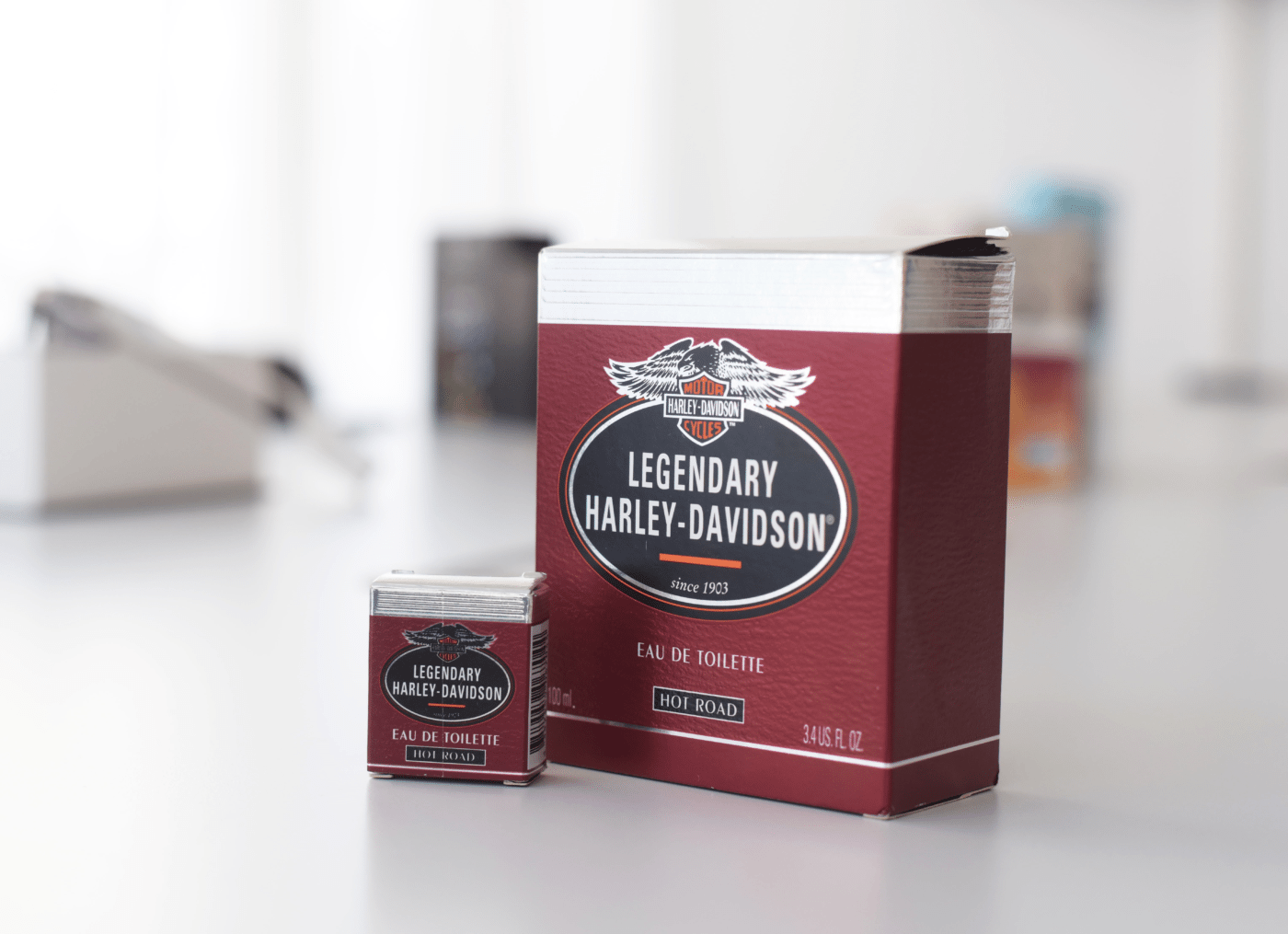
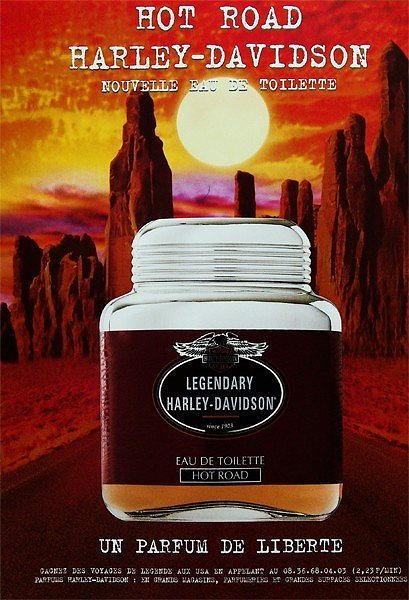
image source: parfumo.net
Posted By: Alex - Sun Sep 18, 2022 -
Comments (0)
Category: Business, Products, Success & Failure, 1990s, Perfume and Cologne and Other Scents
Bic Disposable Pantyhose
1976: The Bic Pen Corp. decided to branch out into the women's underwear market by introducing a line of disposable pantyhose. The thinking was that their company was already known for making disposable pens and lighters. So why not disposable pantyhose as well? Plus, they figured that female secretaries would be keen to order pantyhose together with other office supplies.
This is now considered to be a classic marketing failure. Matt Haig writes in his book Brand Failures:
The main problem was that the company insisted on using the Bic name. As marketing writer Al Ries has observed, using the same name in unrelated categories can create difficulties. "If you have a powerful perception for one class of product, it becomes almost impossible to extend that perception to a different class," he argues.
The company apparently didn't learn much from this failed product, because in 1989 it introduced Bic Perfume, which is considered to be another classic business blunder.

Chicago Tribune - Apr 3, 1976
Posted By: Alex - Thu Mar 18, 2021 -
Comments (3)
Category: Business, Products, Underwear, 1970s
Social-Distancing Cooler
One of the ongoing weird themes of this pandemic has been oddball devices for social distancing. For instance, we've previously reported on social-distancing shoes.In this vein, beer brand Dos Equis recently unveiled a social-distancing cooler. The company described it as "part beer cooler, part social distancing measurement device."
From what I can gather, it seems like the cooler was actually two small coolers joined together. So you didn't need to fill the entire thing with ice.
Unfortunately, the promo in which they were giving these things away is already over.
More info: seisfootcooler.com, travelandleisure.com


Posted By: Alex - Mon Aug 03, 2020 -
Comments (4)
Category: Hygiene, Products
Swiss Air Deluxe
Swiss Air Deluxe is Swiss air in a can. The makers promise that it offers a variety of health benefits. For instance, "airways and lungs will recover," "improves your blood values," "gives you energy for excercises, studies and work," and "much better potency and virility."
Recently, the makers of this stuff added a new product: Swiss Virgin. This is Alpine air "enriched with the lovely smell of real Swiss virgins who are living on the mountains." They add, "The sexy underwear is inside the can !"

Apparently, Swiss Air Deluxe is mostly sold in Asia. For which reason, a few months ago it was awarded the "Devil's Stone" Award, which is a satirical prize given annually to the most absurd freight-shipped product.
A representative from the company actually showed up to accept the prize, but defended the product, arguing, "We take advantage of unused spaces on transport boats when they return to Asia, so our ecological footprint is close to zero."
For some reason, Swiss Air Deluxe's website is currently down. But you can check out the cached version. And their product video below.
Posted By: Alex - Tue Apr 28, 2020 -
Comments (5)
Category: Products, Smells and Odors
Sprink
I wonder how much consumer research this company did before deciding to name their product 'Sprink'. I'm guessing they thought it was a catchy shortened form of 'sprinkle'. But the problem is that the name sounds too much like 'Stink', which is exactly the wrong association for a room-rug freshener. Must be why it doesn't seem to have been on the market more than a few months.
Rocky Mount Telegram - June 18, 1963

Cincinnati Enquirer - Oct 21, 1962
Posted By: Alex - Fri Feb 14, 2020 -
Comments (2)
Category: Odd Names, Products, Fetishes, 1960s
Scented Scissors for kids
Hey kids, wanna sniff some scissors?Available from Westcott

Posted By: Alex - Thu Sep 26, 2019 -
Comments (3)
Category: Products, Perfume and Other Scents
Cheetos Lip Balm
A number of sites (such as USA Today) list Cheetos Lip Balm as one of the greatest product flops of all time. I don't agree. It was definitely weird, but I can't find any evidence it flopped.Some context: it came on the market in 2005, created by Lotta Luv, a New York cosmetics company that specialized in licensing flavors from well-known brands. Some of the other odd lip-balm flavors they offered included Hostess Ding Dongs, Cracker Jack, Junior Mints, fourteen flavors of Snapple, and Lay’s Sour Cream and Onion. Their target market was girls 8 to 14. Apparently, young girls loved these weird lip balms.
As far as I can tell, the Cheetos lip balm remained available until 2011, which doesn’t seem like a flop.
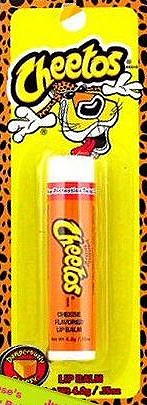

Arizona Daily Star - Mar 18, 2004
Posted By: Alex - Sat Sep 07, 2019 -
Comments (0)
Category: Products, Junk Food

| Who We Are |
|---|
| Alex Boese Alex is the creator and curator of the Museum of Hoaxes. He's also the author of various weird, non-fiction, science-themed books such as Elephants on Acid and Psychedelic Apes. Paul Di Filippo Paul has been paid to put weird ideas into fictional form for over thirty years, in his career as a noted science fiction writer. He has recently begun blogging on many curious topics with three fellow writers at The Inferior 4+1. Contact Us |




